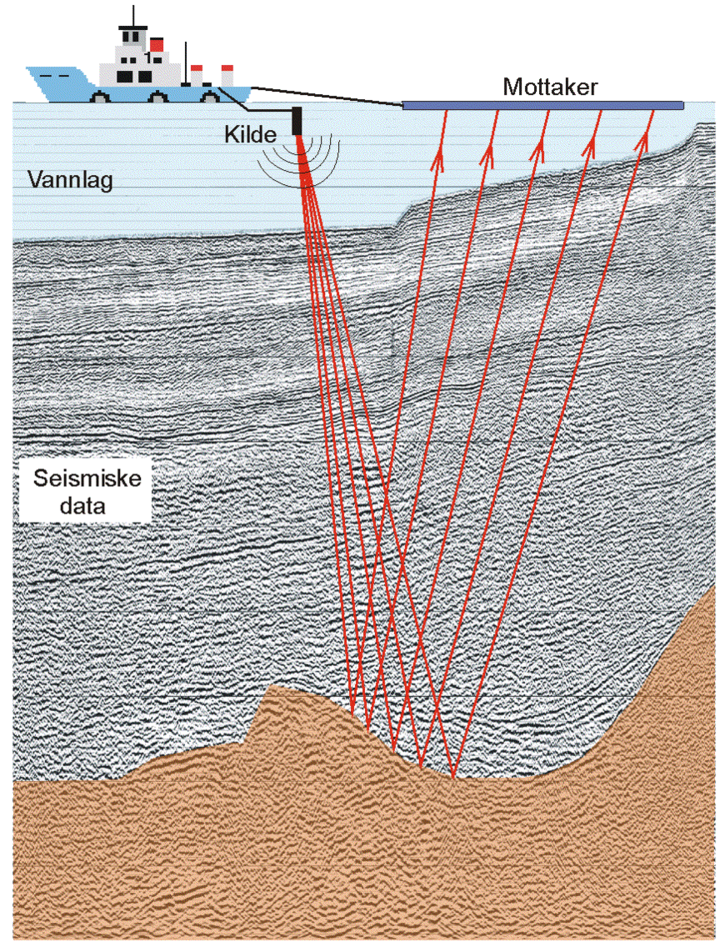All Categories
Featured
Table of Contents
Why Study Geophysics? in Woodvale Australia 2023
This work is significantly contracted out, so consultancies offer another source of work. Consultancy companies vary in size, from extremely small business to big multinationals. Some consultancies are quite specialised in utilizing specific geophysical techniques or working in specific locations, while others provide a more diverse variety of services to their consumers.
The extraction of gas from land fill websites is another location of work and this may grow in the future. Exploration business might carry out work for construction companies, water business, mining business and ecological companies, so geophysicists might be used in any of these settings. Other employers consist of: geological surveysgovernment bodies and agenciesuniversities and research institutes.


Jobs might be noted in the oil and gas sector press. Recruitment is impacted by oil cost fluctuations and the level of competitors for positions varies depending upon this. Careers Days, which cover the full variety of geoscience careers and are usually participated in by a number of crucial market employers, are run by The Geological Society.
Geophysicist - Salary, How To Become, Job Description & ... in Kingsley Aus 2023
A few of the large oil and gas companies use a complete two-year structured training program across the breadth of geophysics, consisting of the chance to experience work in various teams before specialising in one area. Your training may include deal with: existing wellsmagnetic and gravitational possible field data analysisresearchrock analysis. It's more usual for your preliminary training to be provided on the job.

There may be a probationary period throughout which you work alongside a skilled coworker. Competency-based appraisals occur frequently in a lot of companies. In smaller companies, and for academic posts, there is not likely to be any formal training - you'll be anticipated to start work straightaway and get skills as you go along.
If you work for a smaller sized business, you may find that you need to take obligation for organizing and funding your own development and training. If you have a geology degree, subscription of The Geological Society can be beneficial for networking and for keeping up to date with the industry.
Geophysical Surveys - U.s. Geological Survey in Wembley Downs Oz 2021
You might also find it helpful to join the PESGB (The Petroleum Exploration Society of Great Britain, which has a geophysics special interest group. After a probationary duration, and when you've gained some experience, you could progress to senior geophysicist, then team leader and after that into a senior role in management.
The ease of movement between functions depends on the company structure. Study at Masters or Ph, D level in a subject related to geophysics or geosciences might aid with your career development and progression. The employment market within the oil and gas industry is very depending on rate and this may affect your opportunities for profession development.
For experienced geophysicists, freelance consultancy provides an excellent route for career development. As a geophysicist, you're most likely to have a number of tasks throughout your working life.
Hydrographic And Geophysical Surveys in Morley Aus 2023
From geophysics, it's possible to concentrate on seismology (finishing additional training to end up being a seismic interpreter) or to move into associated areas such as engineering geology or hazard forecast.
Deciding what to study in college is a hard choice. Even if you understand that your field of interest lies in science, what program of study is best for you? If you make the choice to significant in physical and life sciences and pursue a career as a geophysicist, you're preparing for an exciting and successful profession.
However the initial step to attaining your goal of ending up being a geophysicist is making a degree. Even for entry-level positions in the field of geoscience, you'll require a bachelor's degree (a geophysicist college degree) from an accredited college or university. Some research positions need candidates to hold master's degrees and even Ph.
Geophysics Jobs in Bayswater Australia 2020
Doctoral degrees are specifically important if you plan to teach at a four-year organization. Geophysicists use physics ideas and strategies to study the gravitational, magnetic, and electric fields of the earth. This furthers researchers' knowledge of both the world's interior core and its surface. Geophysicists need to be able to: evaluate rocks, photographs, and other pieces of information carry out research both in the field and in laboratories develop maps and charts of their findings compose reports To achieve all this, students require a specialized education for geophysicist careers.
As specified above, you'll need a bachelor's degree in geoscience or a related discipline, such as a physical science or a natural science, to land an entry-level job. But students can likewise prepare by majoring in subjects like: Biology Chemistry Computer system science Engineering Mathematics Physics The above geophysicist majors provide a more generalized approach to a single clinical discipline, but the majority of programs need students to take one or more geology course.
Latest Posts
Geophysical Survey Methods in Champion Aus 2021
Geophysical Survey - Salisbury Archaeology in Hocking Australia 2021
What Can I Do With A Major In Geophysics? in Carine Australia 2023